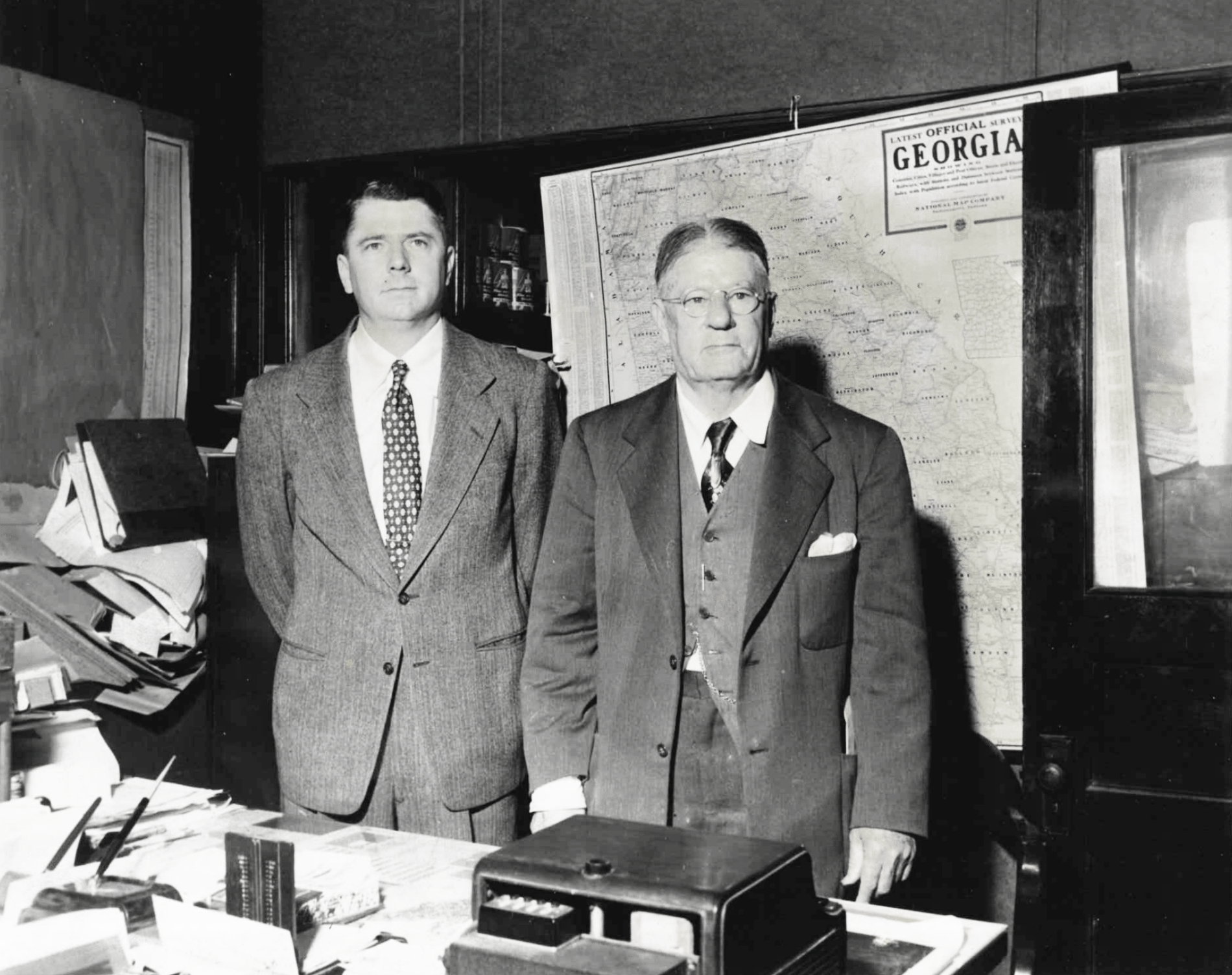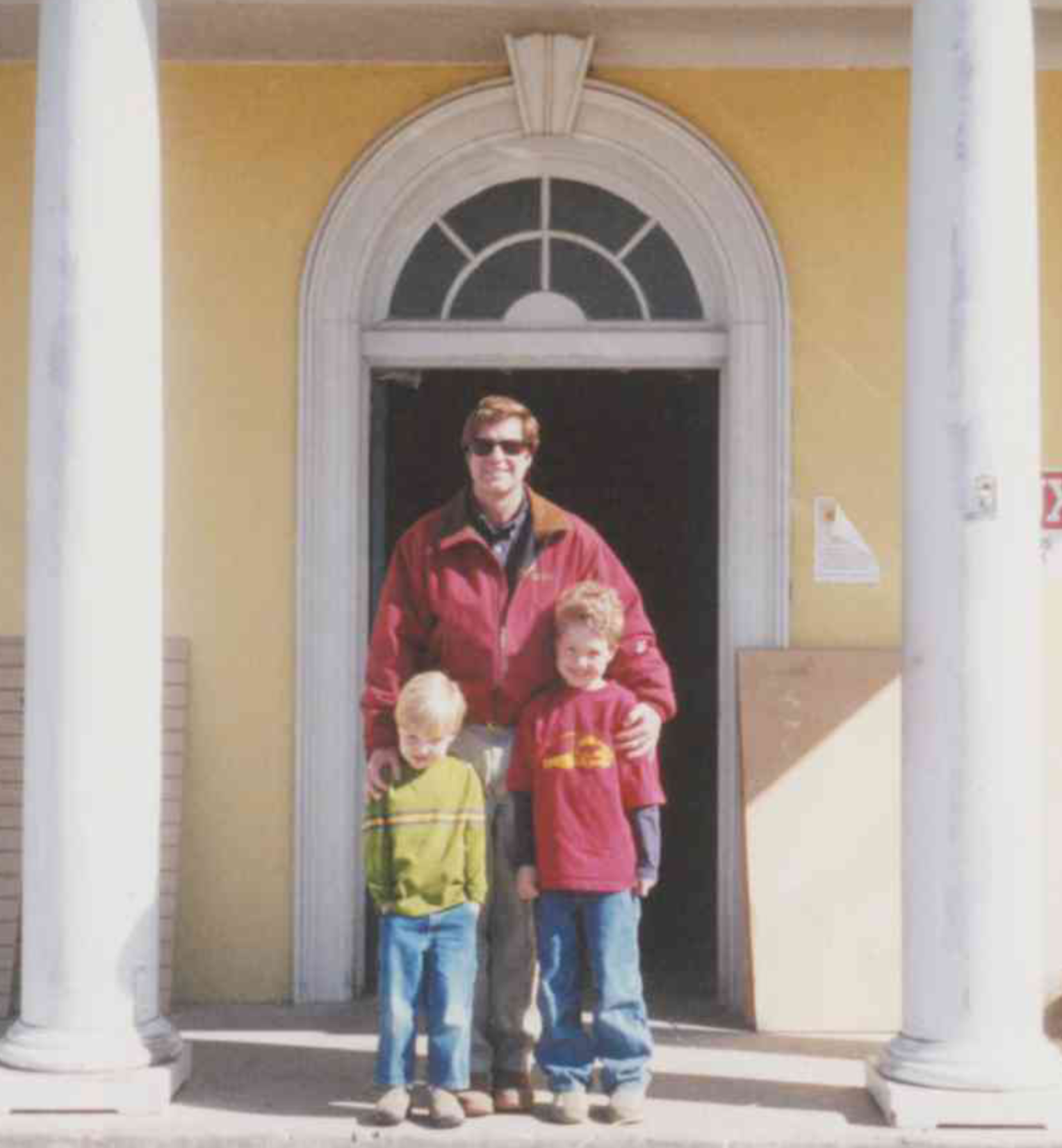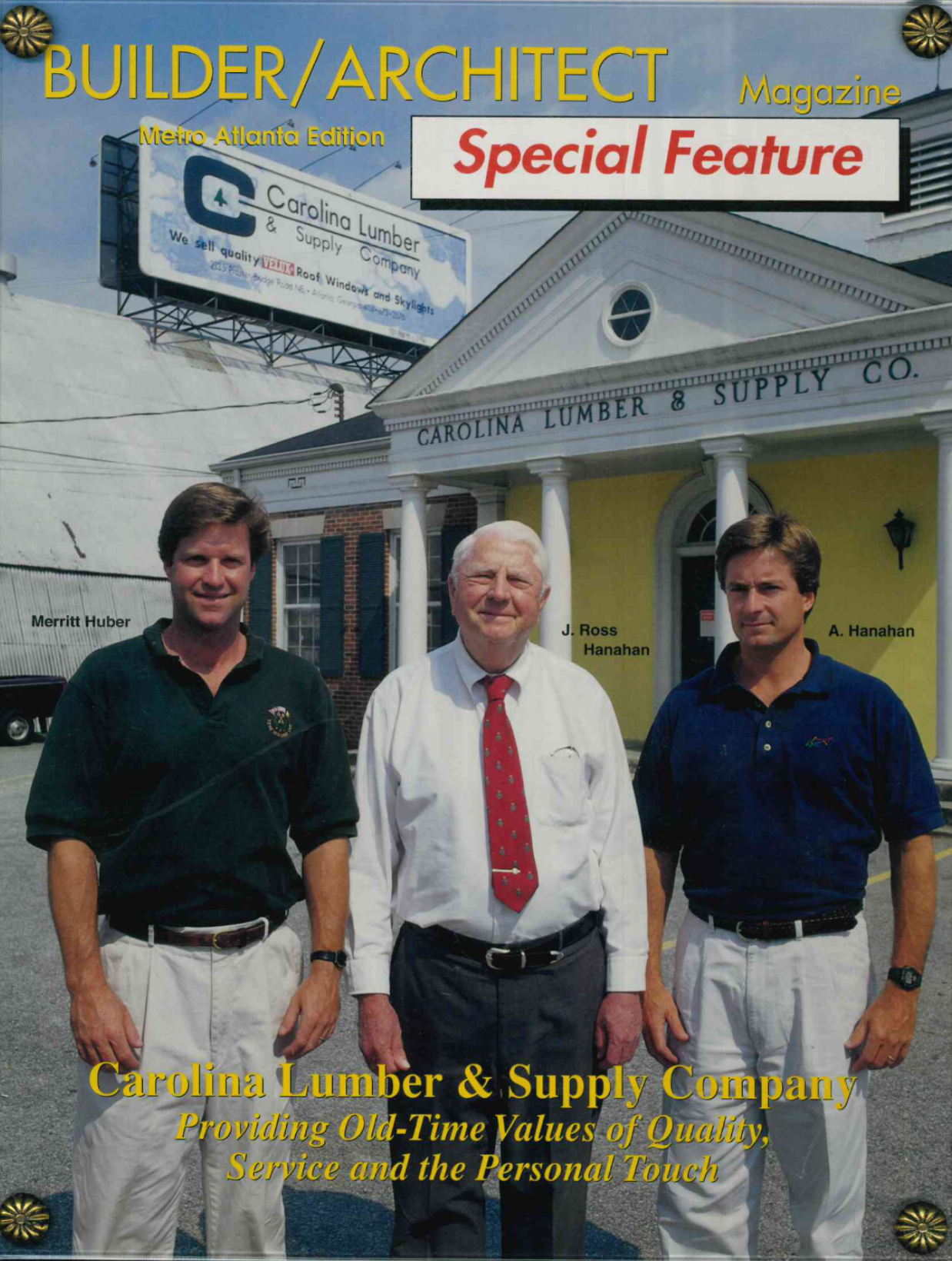Carolina Lumber: More Than a Century of Resilience in Atlanta
September 11, 2025
When fire engulfed the Carolina Lumber yard in Midtown Atlanta in 2000, it wasn’t the first time the company had watched everything go up in smoke.
It was, however, a defining moment. A moment that reinforced the company’s legacy, not of luck or nostalgia, but of grit and adaptability.

Founded in 1900 by P.G. Hanahan as the Carolina Portland Cement Company in Charleston, South Carolina, the company’s journey has never followed a straight line. Its pivot from cement to framing materials in the mid-20th century, its relocation to Atlanta, and its ability to withstand both economic turmoil and literal catastrophe, including that fire, have cemented its place both in Atlanta and in the building materials industry at large.
This year, Carolina Lumber marks 125 years in operation, roughly 40 of them under the leadership of Allen Hanahan and Merritt Huber Sr., and now his sons Merritt Jr. and Blake are poised to take the helm.
On The Brink
In the early hours of 2000, a phone call jolted Merritt Sr. awake: Carolina Lumber’s main warehouse was burning. By the time he arrived, it was mostly gone.
“It went up like a match,” he recalled. “That building was beautiful, old, all wood. It was originally a fertilizer factory. You could still see the stuff caked up in the beams.”
They lost everything. Trucks. Forklifts. All machinery. All stock.

But what they didn’t lose was momentum.
At the time, the company already knew it would have to relocate due to the expansion of Metropolitan Atlanta Rapid Transit Authority’s (MARTA) train facility. What seemed like a crisis within a crisis became an opportunity. With the help of a determined public adjuster, Carolina Lumber secured the insurance money it needed—over $1 million—to rebuild.
By 2002, they had moved into a new, rebuilt headquarters on Plasters Avenue. The entire situation had echoes of another near catastrophic fire the company experienced decades before.
The lumber business isn’t for the faint of heart.
Back in 1957, another fire had destroyed Carolina Lumber’s original Atlanta location across from Grady Hospital. That fire wiped out what had been their headquarters since the early 1900s. Fortunately, Ross Hanahan, the son of the founder, had purchased land in what’s now the Armour Industrial area, purely on speculation. So, when the downtown location burned, at least Carolina Lumber already had a place to recover and rebuild.
“If that building had survived, it’d be sitting in the middle of the connector,” Merritt Sr. said, referencing the stretch of I-75/85 that now runs through the area.
The 1957 fire left the business without a building, but not without support. A public insurance adjuster named Johnny Clifton stepped in to help the company negotiate its claim.
Clifton reappeared in their lives more than four decades later when the 2000 fire hit. After news coverage showed the blaze on local television, Clifton showed up at the burned site uninvited. Ross Hanahan recognized him instantly. “Johnny, how are you doing? Come on in,” he reportedly said. And just like that, Clifton was back on the case.
“He asked if we lost gas in the trucks. We had. He asked about trees. We’d lost a few,” Merritt Sr. remembered. “He found every little thing to claim. Nails. Tires. Trees. You name it.” The result? A payout of over $1 million, just as Clifton and his acute attention to detail had delivered in 1957. It was the result they needed to rise up and keep going.
From the Brink to the Boom
Like any business, Carolina Lumber has had its ups and downs. By the early 1980s, the company’s sales were sluggish at under $1 million per year. The company was surviving more on interest from bank accounts than from operations.

That’s when Merritt Sr. and his cousin Allen Hanahan, both fresh out of college, joined the business with something to prove.
“We hit the streets of Atlanta. No internet. No GPS. Just handshakes, associations, and hustle,” Merritt Sr. recalled.
It wasn’t fast. But it worked. By the early 1990s, the company was doing over $8 million in sales. In 1997, they opened a second location on the west side of Atlanta. By the time Merritt Jr. joined in 2017, they had climbed past $20 million. At their pandemic peak, they hit $50 million.
A Culture Built on Showing Up
At the heart of Carolina Lumber’s longevity is a simple philosophy: show up every day and do the work. When others cut corners, Carolina doubled down on quality. When business slowed, they focused on relationships. When the economy tanked—like it did in 2008—they didn’t fold. They adapted.
That 2008 recession was brutal. The company laid off 14 of its 45 employees. “We split it. Allen took one store, I took the other,” Merritt Sr. said. “It was the hardest thing I’ve done. I hope I never have to do it again.”
They didn’t recover overnight. But by 2011, they were climbing again.
And they never stopped investing, whether in premium brands like Boise Cascade or in their people.
“We’ve always been a custom home builder supplier,” said Merritt Jr. “Our customers are high-end, high-expectation, and we meet that with high standards.”
Those standards show up in their famously spotless yards, the strength of their in-house floor system design team, and even their annual spring barbecue, which draws hundreds of local builders, many of whom have worked with Carolina Lumber for decades.
It’s Not Just a Business—It’s a Legacy
Carolina Lumber has never been just a place to buy wood. From founder P.G. Hanahan to the soon-to-arrive sixth generation (Merritt Jr.’s son, due in December), the company has stayed rooted in the belief that business is personal.
That culture was shaped in equal parts by Merritt Sr. and Allen Hanahan, whose partnership defined the modern era of the company.
“Allen and I complemented each other’s abilities,” said Merritt Sr. “He was the good cop—warm, welcoming, always smiling. I was the numbers guy, the collector. It just worked.”
With Merritt Jr. and Blake Huber taking on more leadership responsibilities at Carolina Lumber, it’s a commitment they see very clearly, and one they take seriously.
“Our challenge is not just to maintain what’s been built, but to grow it,” said Merritt Jr. “Grow our product lines. Deepen our relationships. Serve our market even better.”
125 Years In, Still Pushing Forward

Most businesses don’t last three generations. Yet Carolina Lumber is entering its fifth.
“People are amazed it’s five generations because typically you’ve got the first generation that builds it, the second generation nurtures it, and the third generation destroys it. We’re well past the third act, and looking forward to the sixth,” Merritt Sr. said.